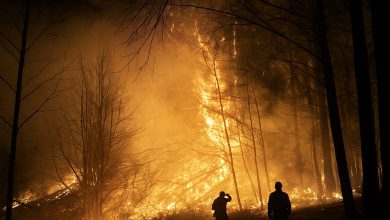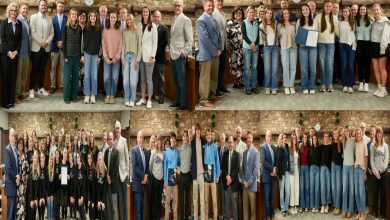
Last Updated on October 15, 2021 1:28 pm
Friday, October 15, 2021
Our students and many of our faculty returned from Fall Break, signaling we are midway through the fall semester. I would like to take this time to thank our students, faculty and staff for your diligence in following COVID-19 safety protocols. Our COVID response continues in earnest, and while we did see an increase in positivity rates this week, case counts remain low while our student vaccination rates continue to steadily increase. As a reminder, we update our COVID data dashboard on Mondays, and I report end-of-week data in my weekly Friday emails.
- The latest reported App State student vaccination rate is 64%. For students who live on campus, that rate is 76%. The vaccination rate for Watauga County’s total population is currently 56%, and for North Carolina, the latest reported rate is 54%.
- So far this week, we have tested 1,142 students, faculty and staff on campus, with a positivity rate of 2.3%. Watauga County's latest reported positivity rate is 3.2% and North Carolina’s latest reported positivity rate is 5.9%. The CDC continues to keep Watauga County in their “high transmission” category, and, following their guidance, our requirements for face coverings in public, indoor settings remain in place.
Beginning Monday, all employees will be required to upload a copy of their vaccine cards using this link, which is also posted on the vaccine page and reporting page of the university’s COVID website. My leadership team and I are having weekly meetings with university leaders representing Faculty Senate, Department Chairs, Deans, Staff Senate and the Student Government Association. In these meetings, we have consistently heard that these constituent groups would like to see faculty and staff take the next step, and move from attesting to their vaccine status to providing the same level of vaccine documentation we are requiring from students.
Required and optional testing continues. In addition to testing clinics for students in residence halls, testing clinics remain open for all students, faculty and staff each Tuesday, Wednesday and Thursday afternoon for anyone who wants or needs a COVID test for any reason.
Provost Heather Norris, Vice Chancellor Hank Foreman and I are continuing our meetings with academic departments, joined by the Deans and other members of the university’s leadership team. Last year at this time, our discussions in these meetings largely centered on the university’s COVID response, and while we continue to discuss COVID to some degree, these conversations are more focused on what we have learned as an institution over the last 19 months and how we can leverage our resilience and innovation to become even better prepared for a post-pandemic higher education landscape. These conversations have been engaging and informative, and have included faculty sharing their research successes, ideas for collaboration across colleges and disciplines, and how planning for our future Innovation District, in particular, can benefit not only the campus community but also the local community, state, region and beyond through continued education, research and outreach.
As part of a grant with the National Geographic Society, Dr. Baker Perry, in the Department of Geography and Planning, is leading App State’s collaboration with citizen scientists in Nepal to operate and maintain the network of weather stations they installed on Mount Everest in 2019. This week, Provost Norris and I had the pleasure of meeting with Panuru Sherpa, one of the Nepali citizen scientists who helped Baker Perry’s team install the weather stations, and who is helping keep the equipment operational between scientific expeditions. This installation was just recently recognized in the Guinness World Records Book as the highest altitude weather station on land. The stations provide important data — including daily forecasts for Mount Everest and temperature and precipitation readings at the Base Camp — that are informing research around the world, and expanding and deepening our perspectives on climate science.
Closer to home, this is a beautiful time of year to enjoy the outdoors and all the beauty and resources our region has to offer. The emerging fall colors are a sure sign autumn traditions are on the horizon — including our Homecoming celebrations coming up at the end of the month.
![]()
Sheri Everts, Chancellor



















